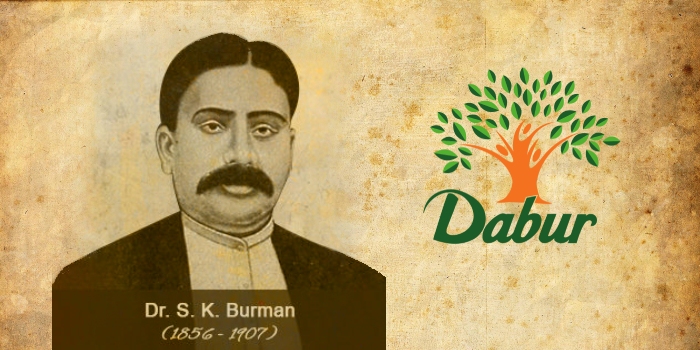The name ‘Dabur’ is nostalgic to Indians. The ayurvedic brand with more than 130 years of legacy and 250 ayurvedic products to its credit has been an inspiration to many entrepreneurs. Dabur’s products come under the category of Hair Care, Oral Care, Health Care, Skin Care, Home Care and Food Segment. Some of its products such as Pudinhara, Honeytus, Hajmola, Dabur Amla Hair Oil, Vatika, Chyawanprash, and Real Fruit Juice have a great brand recall, too. What is the story of Dabur? Let’s check out.
Dabur was established by Dr S.K. Burman in Calcutta during the British Raj. It was started as a small clinic providing ayurvedic remedies to treat the then life-threatening diseases like malaria and cholera. The name Dabur is formed by taking ‘Da’ from Dakataar, which is the Bengali pronunciation for the doctor, and ‘Bur’ from his last name Burman. His remedies were effective. So, Burman decided to mass produce the medicines.

His son C.L. Burman started India’s first Research and Development Centre for ayurvedic medicine. Dabur became a public limited company in 1996. The company has 20 manufacturing units across the world. It functions via three specific units – customer care division, international business division, and consumer health division. Its ayurvedic products are being sold across 6.7 million retail outlets in India. Globally, Dabur has a presence in over 100 countries. The company’s 45 per cent of business comes from the rural segment. The urban market contributes 55 per cent. The overseas revenue contributes to 27 per cent of Dabur’s total turnover of Rs 8,500 crore.

Dabur became successful, thanks to its business strategy. The management of the company was open to new ideas. In 1998, the Burman family handed the family business to professionals. Innovation and product portfolio improvisation helped the brand in retaining its market position this far. Also, Dabur is placed in an ever-thriving segment – natural products. This has definitely served it well. Dabur is the second key player in the segment after Patanjali.
The last decade saw fierce competition between Dabur and Patanjali, a brand that followed Dabur’s similar strategy. Still, Dabur survived mainly due to its innovative marketing strategies, expansive distribution network, and product innovation. Currently, the company has 14 brands with an individual turnover of over Rs 100 Crore.
In August 2022, Mohit Burman was appointed as the Chairman of Dabur India replacing his cousin Amit Burman. According to him, the time for a new business strategy is here as Covid-19, supply chain disruptions, inflation, and geo-political tensions have brought about unprecedented crises. It is time to do close monitoring of the situation. And, Dabur plans to drive demands for its products by improving its rural footprint and investing in its start brands.
